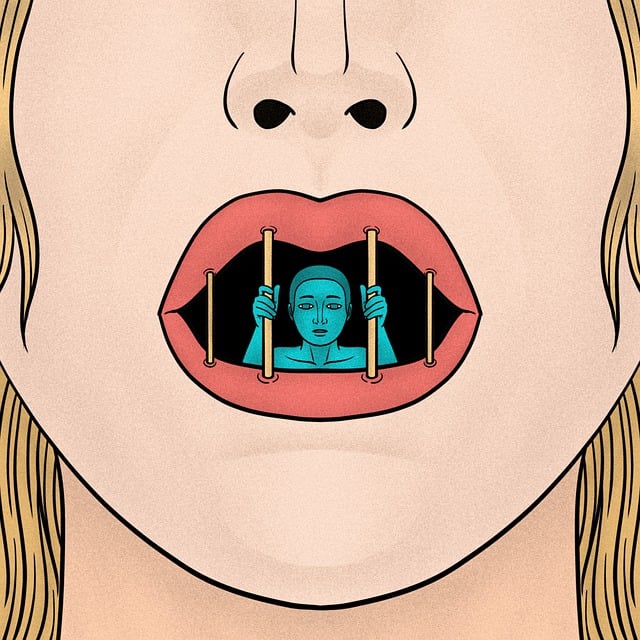The biggest mistake you can make is judging people for their weird body language. You’ll never know; they might be victims of narcissistic abuse, and they unconsciously develop such unusual behaviors. Body language often speaks louder than words. When someone’s actions seem strange, it can be easy to overlook the deeper issues they might be facing. Such subtle signs can reveal a lot about a person’s emotional state and their struggles with narcissistic individuals.
In this article, we’ll explore some of these weird signs, helping you understand what they might mean and how they relate to the effects of narcissistic abuse.
1. Frequent tension in the shoulders.
Have you ever wondered why your body feels like a coiled spring when you’re dealing with narcissistic abuse? This sensation often comes from being caught in a cycle of emotional turmoil. Your body unconsciously holds on to stress in ways you might not even recognize. You might find yourself keeping your shoulders raised and tense, as if you’re bracing for a threat. It signals that your body is in a constant state of alertness. This tension isn’t just random; it’s your body’s built-in early warning system designed to protect you from perceived dangers. To overcome this, it’s important to consciously relax your shoulders and incorporate mindfulness techniques, like gentle stretching, into your daily routine.
2. Closed off body language.
When you’re navigating the challenging landscape of narcissistic abuse, your body can become a silent messenger. It reveals your emotional turmoil in unexpected ways. You might catch yourself instinctively closing off—crossing your arms or legs tight—without even realizing it. This behavior is your body’s way of protecting itself, forming a barrier between you and the outside world. Trauma expert Dr. Bessel van der Kolk explains that the body often protects itself instinctively when it perceives a threat, even if that threat isn’t always physical. Instead of shutting down, consider using grounding techniques to help relax your body and create a safe space for expressing your emotions.
Recommended Book: Becoming the Narcissist’s Nightmare: How to Devalue and Discard the Narcissist While Supplying Yourself- By Shahida Arabi.
3. Downcast eyes.
Have you ever felt like you are playing hide and seek, but the only one hiding is you? When you are stuck in a pattern of narcissistic abuse, you might find yourself avoiding eye contact and looking down or away more often than usual. This is not just about being shy; it is a way to protect yourself from potential conflict or criticism. Trauma expert Dr. Judith Herman notes that in abusive relationships, people often avoid direct eye contact to reduce visibility. By keeping your eyes downcast, you are signaling that you are not a threat and hoping to avoid confrontation. To overcome this, practice making gradual eye contact with safe people to build your confidence and assertiveness in social situations.
4. Subtle tremors even in silence.
The body speaks volumes about its hidden struggles. If you’ve been through narcissistic abuse, you might notice these tiny involuntary shakes or tremors in your hands or body coming out of nowhere. These subtle tremors are your body’s response to stress, as if it’s releasing all that bottled-up tension bit by bit. Trauma specialist Dr. Peter Levine says the body shakes to discharge energy when it has been in survival mode for too long. So even though you might try to stay calm on the outside, these little tremors reveal the nervous energy that’s still buzzing inside. To overcome these involuntary shakes, engage in regular physical activity or mindfulness practices to release tension and promote calm.
5. Constant nodding.
Navigating the emotional minefield of narcissistic abuse can feel like performing a delicate dance where you are constantly trying to please without stepping on any toes. When you are dealing with narcissistic abuse, you might find yourself nodding a lot—sometimes more than you mean to. This constant nodding is your body’s way of telling others that you are on their side because you do not want to upset them. Psychologist Dr. Ramani Durvasula explains that people in abusive relationships often go out of their way to seem agreeable; they hope it will keep the peace and prevent conflict. Over-nodding becomes an automatic response to avoid any criticism or confrontation. Listen closely; practice asserting your opinions and feelings gradually. Allow yourself to be more comfortable with disagreement in safe situations.
6. Shrinking posture.
In the suffocating grip of narcissistic abuse, your body may adopt a protective stance that speaks volumes about your internal struggle. You might catch yourself slouching, hunching your shoulders, or drawing inward. You are trying to take up as little space as possible. This shrinking posture is a defense mechanism, thinking that if you make yourself smaller, maybe you will be safe. Trauma expert Dr. Bessel van der Kolk explains that when people feel trapped in fear, they instinctively contract, almost as if their body is trying to hide. You are unconsciously hoping to avoid attention or confrontation from the narcissist by shrinking down. To overcome this, practice standing tall and expanding your body in safe spaces, reinforcing your sense of safety and confidence.
7. Frequent throat clearing.
In the aftermath of narcissistic abuse, even your throat can become a battleground of unspoken emotions. If you’ve been through narcissistic abuse, you might notice yourself clearing your throat a lot. Frequent throat clearing can be your body’s way of trying to regain control or ease the tension in a stressful situation. You want to make your voice heard, but the fear of confrontation keeps getting in the way. To overcome frequent throat clearing, practice speaking your thoughts and feelings in low-pressure situations to build confidence and reduce tension.
Recommended: Healing from Hidden Abuse: A Journey Through the Stages of Recovery from Psychological Abuse.
8. Frequent swallowing.
Have you ever noticed someone swallowing frequently during a conversation? It might look like a normal action, but it can be a sign of stress, especially in the context of narcissistic abuse. When you’re feeling tense or anxious, your body can react in ways like this. So if you find yourself or someone else gulping or swallowing more than usual, it might indicate an underlying tension or discomfort in the situation. Your body is trying to cope with the emotional weight of what’s going on. It reflects feelings of unease or fear that come from dealing with a narcissistic person. To overcome the stress that causes frequent swallowing, practice deep breathing and grounding techniques to calm your mind and body.
9. Frequent lip biting.
Have you ever caught yourself biting your lips or pressing them together when you’re feeling anxious? This little habit can say a lot about what you’re going through, especially if you’ve experienced narcissistic abuse. Frequent lip biting is often a sign of tension or discomfort; it’s like your body is trying to soothe itself when things get overwhelming. According to psychologist Dr. Maran Trani, body language can reveal our inner emotional state often more than words can. So if you notice someone constantly biting their lips, it could be a signal that they are feeling stressed or trying to hold back their emotions. It’s a subtle way our bodies react to pressure, especially in situations where we might feel judged or unsafe. It usually manifests when dealing with someone who has narcissistic traits.
A Book: Why Does He Do That?: Inside the Minds of Angry and Controlling Men.
10. Rapid blinking.
Rapid blinking can indicate more than just a simple eye movement. It often serves as a signal of nervousness, particularly in contexts marked by narcissistic abuse. When someone blinks rapidly, it may be their body’s instinctive response to shield their true feelings from those around them. It acts as a protective barrier against perceived threats. Therefore, if you observe someone blinking frequently, it could suggest that they are feeling overwhelmed or anxious, grappling with emotions they may not feel safe expressing openly. This subtle behavior can serve as a telling indicator that the calm exterior they project might mask an underlying emotional storm. It reminds us to look beyond surface appearances and be more attuned to the unspoken struggles of those around us.
In conclusion, the weird signs of narcissistic abuse often show up in body language, revealing much about a person’s emotional state. Understanding these cues is essential for supporting yourself or others in healing from such experiences. If you suspect you or someone you know is affected by narcissistic abuse, don’t hesitate to seek help. Everyone deserves to feel safe and valued.
Read More: Why Narcissistic Abuse Causes Victims to Neglect Self Care.
Sharing Is Caring!







Leave a Comment